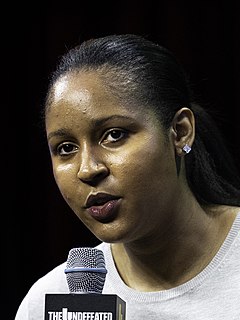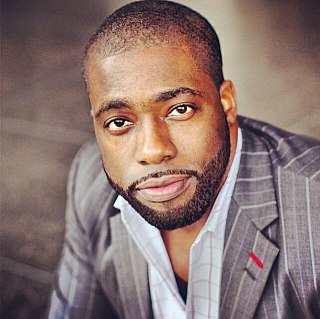A Quote by Michelle Alexander
The fate of millions of people—indeed the future of the black community itself—may depend on the willingness of those who care about racial justice to re-examine their basic assumptions about the role of the criminal justice system in our society.
Related Quotes
I want you to understand that racial justice is not about justice for those who are black or brown; racial justice is about American justice. Justice for LGBT Americans is not about gay and lesbian justice; it's about American justice. Equality for women isn't about women; it's about United States equality. You cannot enjoy justice anywhere in this country until we make sure there is justice everywhere in this country.
Though the rampant racial injustices throughout the criminal justice system were offensive to me and to millions of other people, I've never drawn a tight circle around the black community to define the limits of my moral concern. But that narrative tends to get imposed on you, if you're an African-American activist.
Our current criminal justice system has no provision for restorative justice, in which an offender confronts the damage they have done and tries to make it right for the people they have harmed. [...] Instead, our system of "corrections" is about arm's-length revenge and retribution, all day and all night.
The fact that more than half of the young black men in any large American city are currently under the control of the criminal justice system (or saddled with criminal records) is not - as many argue - just a symptom of poverty or poor choices, but rather evidence of a new racial caste system at work.
Ajamu Baraka is a human rights advocate and an international human rights advocate, who's been defending racial justice, economic justice, worker justice, indigenous justice, and justice for black and brown people all over the world, and in the United States has been helping to lead the charge against the death penalty here, and is an extremely eloquent and empowering person. And one of the great things about running with him is that we speak to all of America.
When we look at our justice system, we have this image of a balancing scale: truth and justice, right and wrong. But for years, our system has been lopsided, where it's not about truth and justice or balance. It's about being tough on crime, and sometimes that means you're putting the wrong person behind bars.




































